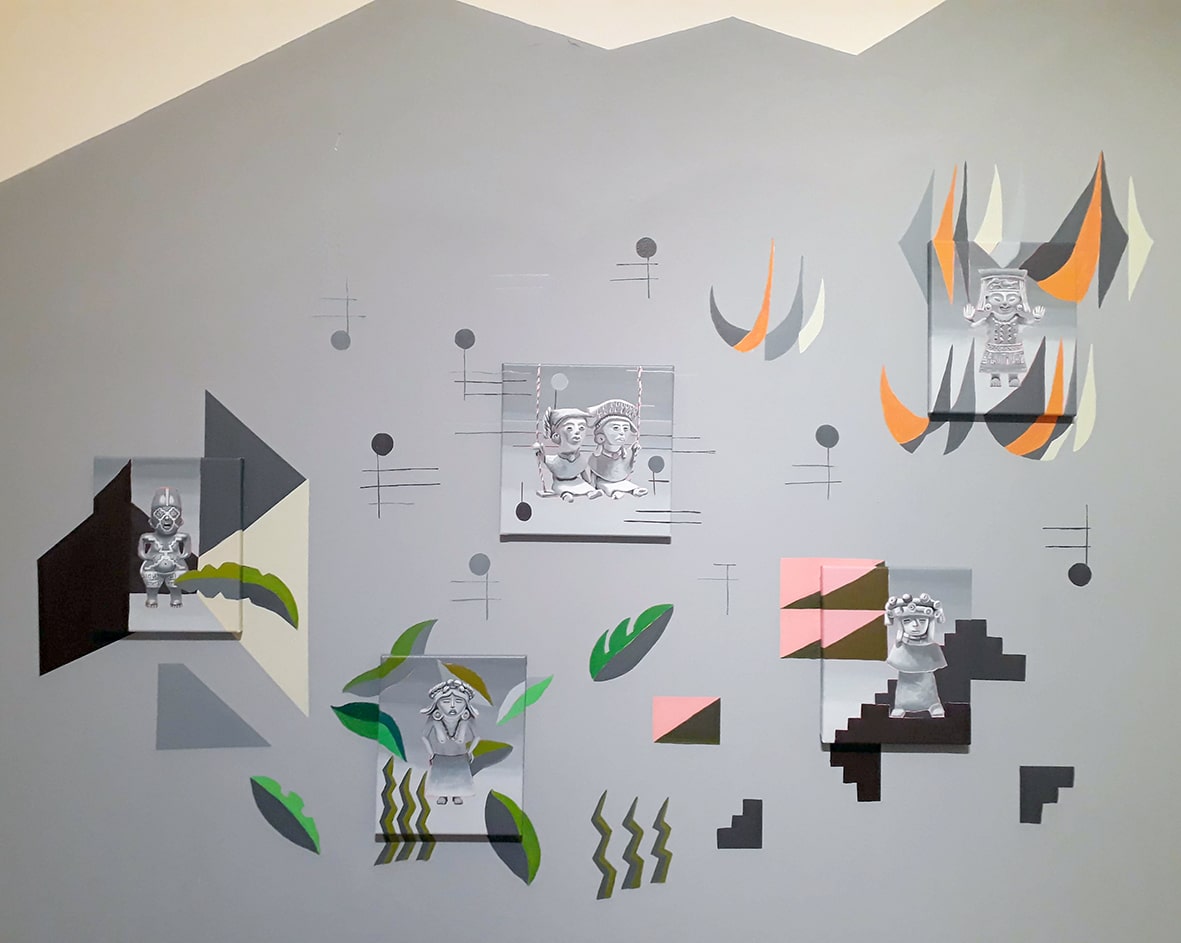SECRET ARCHEOLOGY SERIES / WOMEN WORKING

Memory builds identities and is the result of a sum of subjectivities that are articulated from stories, facts and characters. Patrimonial objects have symbolic values, since they condense many of these stories. The way in which we read them, from contemporary reality, does not necessarily reflect how those societies were, but above all, how is the society that reviews them. In the series Secret Archeology, Sofia Echeverri reflects on the way in which the memory of the role of women in pre-Hispanic societies has been constructed.
Echeverri makes a critical comment when reviewing the way in which the figures of women in the pre-Hispanic collection are referred to, both on the museum’s site and in the encyclopedic books. The artist identified that in most cases the figures are only named from their gender, without mentioning their occupation or social function, in contrast to the male figures, who are referred to according to their occupation: warriors, rulers , gods, sorcerers, etc. This subtle difference, however, marks a gap between the social relevance that is assigned from the present to the female role in the past.
From this reflection, the artist poses the following questions: What would the present of our society be like if these figures had been assigned titles similar to those of men? Would the way of looking at our past change anything? Would it modify in any way our present and our future as a gender?
With these questions as a framework, Echeverri makes realistic copies of some female figures in which she introduces symbolic elements that can associate them with specific functions. It proposes the representation of different activities and professions: botanic, forest keepers, composers, gynecologists, astronomers, sculptors, referee, lighting engineers and magicians.
From the Mesoamerican worldview the world consists of a feminine and a masculine part; each of them associated with certain concepts and elements, not necessarily better than others, but complementary. The Echeverri series also integrates the masculine side, through three pieces called Some have turned their backs on us. It reproduces three male figures on their backs, with this representation seeks to give presence to the male voices that have written the story and their attitude to the female role. In addition, it assigns to each one of them elements with which at least 8 women are cruelly murdered every day in México.
In the series Secret Archeology, Sofía Echeverri proposes a way to rethink the past. It proposes to review the memory under the understanding that both men and women fulfill relevant social functions. This exercise not only calls for new possibilities to build memory, it also seeks to understand the present and the prospective towards the future in an egalitarian social construction.
